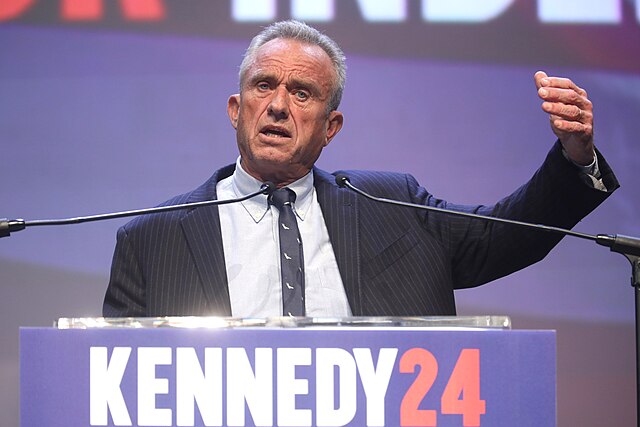
News
News Flash: Memory Shop and Anime Zakka to Open in Harvard Square

News
Harvard Researchers Develop AI-Driven Framework To Study Social Interactions, A Step Forward for Autism Research

News
Harvard Innovation Labs Announces 25 President’s Innovation Challenge Finalists

News
Graduate Student Council To Vote on Meeting Attendance Policy

News
Pop Hits and Politics: At Yardfest, Students Dance to Bedingfield and a Student Band Condemns Trump
15 Harvard Affiliates Call on Senate to Deny RFK Jr. Nomination for Health Secretary

Fifteen Harvard-affiliated Nobel Laureates signed a Monday open letter to the United States Senate opposing the nomination of Robert F. Kennedy Jr. ’76 as Secretary of Health and Human Services.
The letter, signed by 77 Nobel Laureates in medicine, chemistry, physics, and economics, urged the Senate to deny Kennedy the role, arguing that his confirmation “would put the public’s health in jeopardy and undermine America’s global leadership in the health sciences.”
“RFK would take us back to the witch doctors and the quackery of the past,” Roger D. Kornberg ’67, a 2007 chemistry laureate and a signatory on the letter, wrote in a statement to The Crimson. “The elevation of RFK to a critical leadership role would be the gravest threat to public health, going beyond even a pandemic to the ravages of disease.”
Kennedy has attracted significant controversy for questioning the benefits of vaccines and the fluoridation of drinking water, and has gained attention for attacking the U.S. Food and Drug Administration, Centers for Disease Control and Prevention, and National Institutes of Health — institutions he would lead if confirmed.
“The leader of the DHHS should continue to nurture and improve — not threaten — these important and highly respected institutions and their employers,” the laureates wrote.
Eric S. Maskin ’72, a Harvard economics professor and 2007 Nobel laureate, said he was most concerned about Kennedy’s vaccine positions, both from a public health perspective and given the economic cost of a potential outbreak.
“These vaccines have been crucial in — from a public health standpoint — preventing major public, widespread outbreaks of these diseases,” Maskin said. “To have someone like this, an opponent of vaccines, in charge of the department responsible for vaccines, seems a terrible mistake.”
“If you are an expert and you do have a considered view on an issue, I think regardless of how it’s going to fly in our political environment, you have a responsibility to say something,” Maskin added.
Joseph Taylor Jr., a 1993 Physics laureate who received his Ph.D. in astronomy from Harvard in 1969, said, “In general, we try to stay out of politics,” but he and other laureates felt their expertise required them to speak out.
“When there is something about which we, as experts in our own individual fields, feel that we have something to say, we think it’s worthwhile speaking out publicly, and so occasionally we do,” Taylor said. “This is one such occasion.”
Kennedy will almost certainly face fierece opposition from Democrats, needing all but four Republican votes to secure his confirmation.
Taylor said he hopes the Senate will heavily weigh the opposition of scientific experts as they consider Kennedy for Health Secretary.
“We elect people because we think they will be good at representing us, and we expect them to pay some attention — when they don’t have the necessary expertise themselves — to pay some attention to people who do,” Taylor said. “And that’s what I hope to be the case.”
“I’m inclined to think that the anti-science aspects of the policy, the campaigning that was done, is more to attract a certain type of voter than it is an actual expression of scientific, of carefully thought-out policies,” he added.
Still, Maskin acknowledged that a statement from experts like Nobel laureates could backfire in the current political environment.
“Given the time that we’re living in, I always wonder whether a letter like this is productive or perhaps counterproductive,” Maskin said.“We live in a time where there’s deep suspicion of experts and anything that experts say, and so it’s conceivable that a letter like this might have exactly the opposite effect.”
“I guess I still have some hope that knowledge and expertise and wisdom count for something in our society, but I can’t say that with 100 percent assurance,” he added.
Want to keep up with breaking news? Subscribe to our email newsletter.
